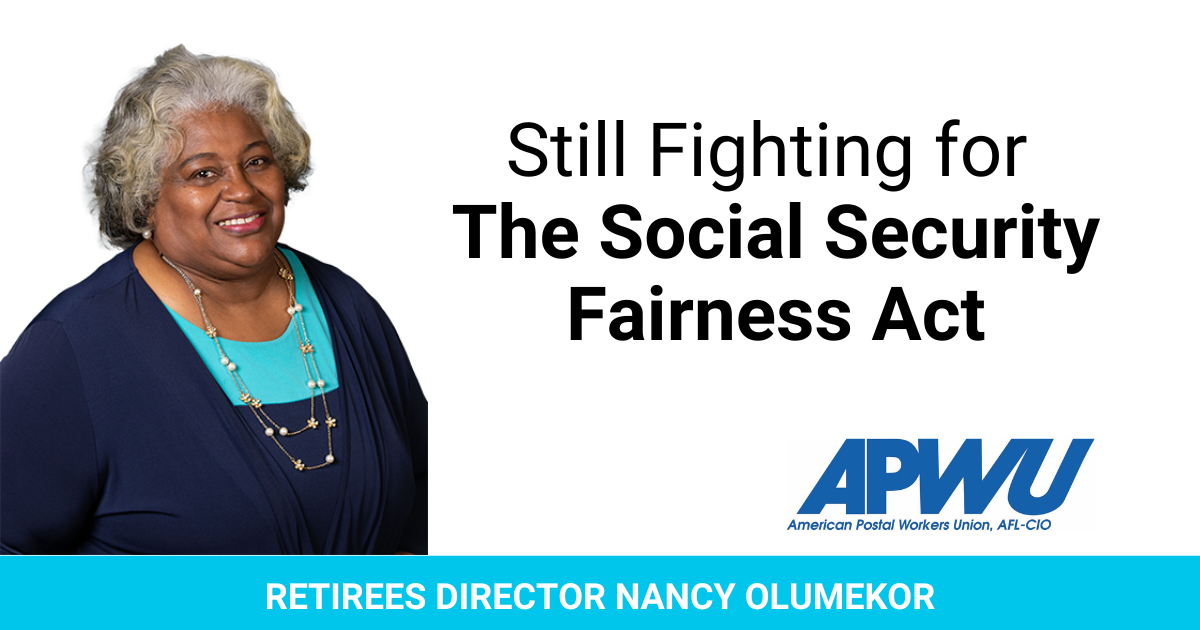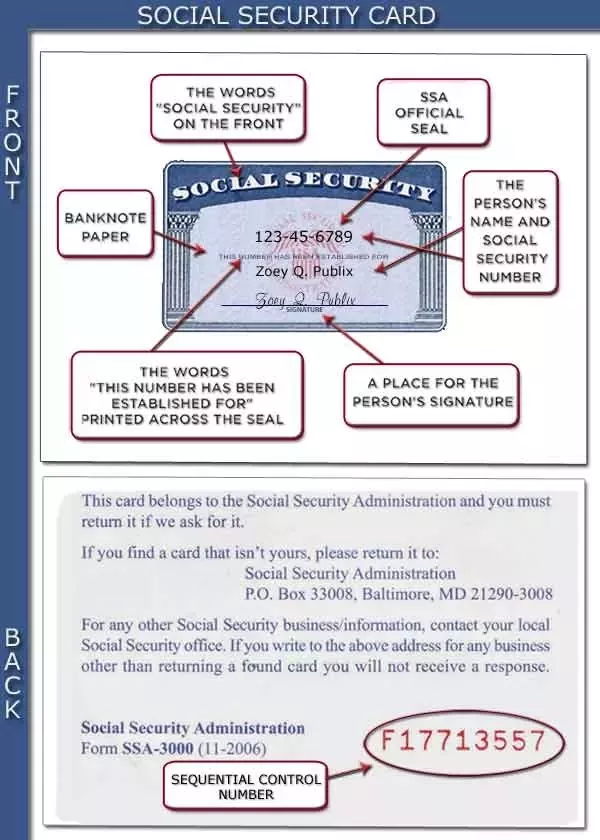The Social Security Fairness Act vote date has not been scheduled yet. The timeline remains uncertain.
The Social Security Fairness Act aims to address the Windfall Elimination Provision and Government Pension Offset. These provisions affect public sector employees by reducing their Social Security benefits. The act seeks to ensure fair treatment for teachers, firefighters, and police officers.
Many retirees face financial challenges due to these reductions. The legislation has garnered bipartisan support. Yet, its future remains uncertain. Lawmakers and advocacy groups continue to push for a vote. The outcome could significantly impact the retirement security of many. Tracking this legislation is crucial for affected individuals.
Backdrop Of The Social Security Fairness Act
The Social Security Fairness Act aims to amend certain unfair provisions. These provisions impact many public employees. These employees include teachers, police officers, and firefighters.
Many feel this act is long overdue. The current system reduces their Social Security benefits. This reduction occurs due to the Windfall Elimination Provision (WEP) and the Government Pension Offset (GPO).
Origins And Purpose
The Social Security Fairness Act was first introduced in the early 2000s. Its main goal is to eliminate WEP and GPO. These provisions affect how public employees’ benefits are calculated.
WEP reduces Social Security benefits for individuals who also receive a pension from non-covered work. GPO affects the spousal or survivor benefits for these employees.
Supporters argue that these provisions are unfair. They believe public servants deserve full Social Security benefits. The act seeks to restore fairness and equality.
Recent Momentum
In recent years, the Social Security Fairness Act has gained momentum. Many lawmakers have expressed their support. Public awareness and advocacy have increased.
- In 2021, the act was reintroduced in Congress.
- It has garnered bipartisan support.
- Many public employee unions back the act.
The growing support signals a potential vote soon. Advocates are hopeful. They continue to push for swift legislative action.
| Year | Major Event |
|---|---|
| 2000s | Introduction of the Act |
| 2021 | Reintroduction in Congress |
Stay tuned for updates on the Social Security Fairness Act. The vote could happen soon. Public employees and retirees are watching closely.

Credit: www.texasaft.org
Legislative Journey
The Social Security Fairness Act has a long road to travel. Understanding its journey through the legislative maze is key. This section dives into the steps it takes. We’ll look at actions in the House and Senate, plus committee reviews.
House And Senate Actions
Both the House and the Senate play roles in passing the Act. Each chamber needs to vote on it. The journey begins in one chamber. Then, it moves to the other.
The House of Representatives often votes first. Representatives debate the Act. They suggest changes. A majority vote is needed to pass it.
Next, the Act goes to the Senate. Senators discuss it. They may propose more changes. A majority vote is also needed here. If both chambers approve, the Act moves forward.
Committee Reviews
Committees are crucial in the legislative process. They review the Act in detail. This happens before any votes take place.
In the House, the Ways and Means Committee often handles Social Security issues. They study the Act. They hold hearings. They may amend the Act. Once they approve, it moves to the full House.
In the Senate, the Finance Committee takes over. They conduct a similar review. They may also hold hearings. Their approval is needed before the full Senate votes.
Both committees work hard to ensure the Act is fair. They listen to experts. They consider public opinion. Their reviews help shape the final version of the Act.
Projected Timelines
The Social Security Fairness Act has many people waiting for its vote. Knowing the projected timelines can help you stay informed. Here, we will discuss the current session estimates and the factors influencing the schedule.
Current Session Estimates
Many are asking, “When will the Social Security Fairness Act be voted on?” The current session estimates suggest it could be soon. This session of Congress has a packed agenda. However, the Act is a priority for many lawmakers.
Some experts predict a vote in the next few months. Others believe it could take longer. The timeline is not set in stone. Yet, it is clear that the issue is on the radar.
Here is a table showing the estimated timeline:
| Event | Estimated Date |
|---|---|
| Committee Review | Next 2-3 months |
| House Vote | Next 4-5 months |
| Senate Vote | Next 6-7 months |
Factors Influencing The Schedule
Several factors affect when the vote will happen. These include:
- Legislative Priorities: The Congress has many issues to address.
- Political Climate: The Act needs bipartisan support.
- Public Opinion: Lawmakers listen to their constituents.
- Committee Work: The Act must pass through various committees.
Each of these factors can speed up or slow down the process. The legislative calendar is always changing. Stay updated for the latest information.
Public Sentiment And Advocacy
The Social Security Fairness Act has garnered significant attention. Understanding public sentiment and advocacy surrounding this act is crucial. Many people actively campaign for its passage. The collective voice of the public can influence legislative decisions. Here’s a deeper dive into grassroots movements and public opinion.
Grassroots Movements
Grassroots movements have played a vital role in advocating for the Social Security Fairness Act. Local communities organize events and rallies. These events raise awareness and support. People share their stories and experiences. This helps build a strong, united front.
Social media campaigns are also a key part of these movements. Platforms like Facebook and Twitter spread information quickly. Hashtags such as #SSFairness and #SupportSocialSecurity are widely used. These campaigns reach a broad audience, engaging more people in the cause.
Volunteers often go door-to-door. They inform neighbors about the act and its benefits. This personal touch makes a big impact. It helps gather signatures for petitions and letters to lawmakers.
Polls And Public Opinion
Polls and surveys provide insight into public opinion on the Social Security Fairness Act. Recent polls show strong support for the act. Many believe it will bring much-needed fairness to the system.
Here is a summary of recent poll results:
| Poll Source | Support Percentage |
|---|---|
| National Survey | 65% |
| State-Level Poll | 70% |
| Online Poll | 68% |
These numbers show a clear trend. The majority of the public supports the act. Lawmakers often consider such data when making decisions. Public opinion can push them towards a vote.
Advocacy groups also conduct their own surveys. They use this data to bolster their campaigns. These groups often publish their findings. This keeps the momentum going and informs the public.
Political Landscape
The Social Security Fairness Act has garnered significant attention. The political landscape surrounding this bill is dynamic. Understanding the key players is essential.
Bipartisan Support And Opposition
The act has seen bipartisan support. Lawmakers from both parties back it. They believe it ensures fairness. Yet, there’s also significant opposition. Some fear the financial implications. They worry about the cost to taxpayers. Others think it’s unfair to some groups.
Lobbyist Impact
Lobbyists play a significant role. They influence the political landscape. Various groups have vested interests. They push for or against the act. Their efforts can sway opinions. This impact is substantial. They often hold meetings with lawmakers. They present data and arguments. This can change the course of the vote.
| Group | Position |
|---|---|
| Public Employee Unions | Support |
| Taxpayer Associations | Oppose |
The table above shows two key groups. Public employee unions support the act. Taxpayer associations oppose it. This highlights the divided opinions.
Understanding the political landscape helps predict the vote. The influence of lobbyists is crucial. Lawmakers must balance various interests. The outcome remains uncertain.
Credit: www.govtrack.us
Potential Outcomes
The Social Security Fairness Act has been a topic of intense debate. As the voting date approaches, many are anxious about the potential outcomes. This section delves into two main scenarios: the passage of the Act and possible stalling or blockage.
Passage Scenario
If the Social Security Fairness Act passes, it will bring significant changes. Public employees affected by the Windfall Elimination Provision (WEP) and Government Pension Offset (GPO) will see relief. This could mean more retirement income for many.
The passage could also influence public sector employment. More people might consider jobs in public service. This could lead to a stronger, more motivated workforce.
Legislative success may boost the trust in the social security system. People will feel their voices have been heard. This could foster a sense of fairness and justice in the community.
Stalling Or Blockage
If the Act stalls or gets blocked, there will be consequences. Many retirees will continue to face reduced benefits. This could lead to financial stress for those who rely on social security.
Public employees might feel undervalued. This could affect job satisfaction and morale. It might also deter potential employees from considering public sector jobs.
Stalling the Act could lead to more political debates and conflicts. People might feel their needs are being ignored. This could result in a lack of trust in the system.
Here’s a quick comparison of the potential outcomes:
| Outcome | Effect on Retirees | Effect on Public Sector |
|---|---|---|
| Passage | Increased benefits | Higher job satisfaction |
| Stalling or Blockage | Continued reduced benefits | Lower job satisfaction |
Implications For Beneficiaries
The Social Security Fairness Act could have significant impacts on beneficiaries. Understanding these changes can help you prepare for the future. This section covers the immediate effects and long-term changes of the Act.
Immediate Effects
Beneficiaries will notice changes right after the Act is passed. Here are some immediate effects:
- Increased monthly payments for some retirees.
- Changes to eligibility criteria for disability benefits.
- Adjustments in the calculation of survivor benefits.
These changes aim to provide a fairer distribution of benefits. Retirees who were previously disadvantaged may see an increase in their payments.
Long-term Changes
The Social Security Fairness Act will also bring long-term changes. These changes will affect future beneficiaries in various ways:
| Change | Impact |
|---|---|
| Updated Benefit Formulas | Ensures a fairer distribution of funds. |
| Revised Eligibility Criteria | More people will qualify for benefits. |
| New Funding Mechanisms | Increases the sustainability of the program. |
These long-term changes aim to make the Social Security system more equitable. The revised formulas will help ensure fair benefits for all.

Credit: apwu.org
Preparing For The Vote
The anticipation surrounding the Social Security Fairness Act vote is palpable. Many are eager to see changes in the system. As the date approaches, it’s essential to understand the preparations underway. This section will explore how citizens and legislators are gearing up for the vote.
Citizen Engagement
Public involvement is crucial in the lead-up to the vote. Citizens need to stay informed and active. Here are some ways to engage:
- Attend town hall meetings
- Participate in online forums
- Contact your local representatives
- Join advocacy groups
These actions can amplify public voice and influence decision-makers.
Legislative Strategies
Lawmakers are employing various strategies to prepare for the vote. Some key tactics include:
- Building bipartisan support
- Creating detailed reports
- Engaging with stakeholders
- Conducting public surveys
These strategies ensure a well-rounded approach to the Social Security Fairness Act vote.
| Citizen Actions | Legislative Actions |
|---|---|
| Attend town halls | Build bipartisan support |
| Join advocacy groups | Create detailed reports |
| Contact representatives | Engage with stakeholders |
| Participate in forums | Conduct public surveys |
Both citizens and legislators play vital roles in this process. Their combined efforts will shape the outcome of the Social Security Fairness Act vote.
Frequently Asked Questions
What Is Happening With The Social Security Fairness Act?
The Social Security Fairness Act is currently under review in Congress. This bill aims to repeal the Windfall Elimination Provision and Government Pension Offset, which reduce Social Security benefits for some public sector employees. Lawmakers continue to discuss its potential impacts and benefits.
Did Congress Pass The Social Security Act?
Yes, Congress passed the Social Security Act on August 14, 1935. President Franklin D. Roosevelt signed it into law.
Will Social Security Windfall Be Eliminated?
The Social Security windfall elimination provision is still in effect. Changes to this provision depend on future legislation.
What Is The Maximum Wep Reduction For 2024?
The maximum WEP reduction for 2024 is $557. This reduction applies to individuals with pensions from non-covered employment.
What Is The Social Security Fairness Act?
The Social Security Fairness Act aims to repeal the Windfall Elimination Provision and Government Pension Offset.
Why Is The Act Important?
The Act helps ensure fair Social Security benefits for public service workers affected by current provisions.
When Will The Act Be Voted On?
The voting date for the Social Security Fairness Act has not been finalized yet.
Who Will Benefit From The Act?
Public service workers, including teachers and firefighters, will benefit from the Act.
Conclusion
The Social Security Fairness Act remains a topic of interest for many. Its voting date is yet to be determined. Stay informed by following updates from reliable sources. Your awareness can make a difference in understanding this important issue. Keep advocating for fair social security policies.

Richard Martinez is a seasoned cybersecurity expert based in San Francisco, CA, with over 15 years of experience in protecting digital assets for multinational corporations. His expertise includes threat analysis, penetration testing, and developing robust security protocols to safeguard sensitive data.


